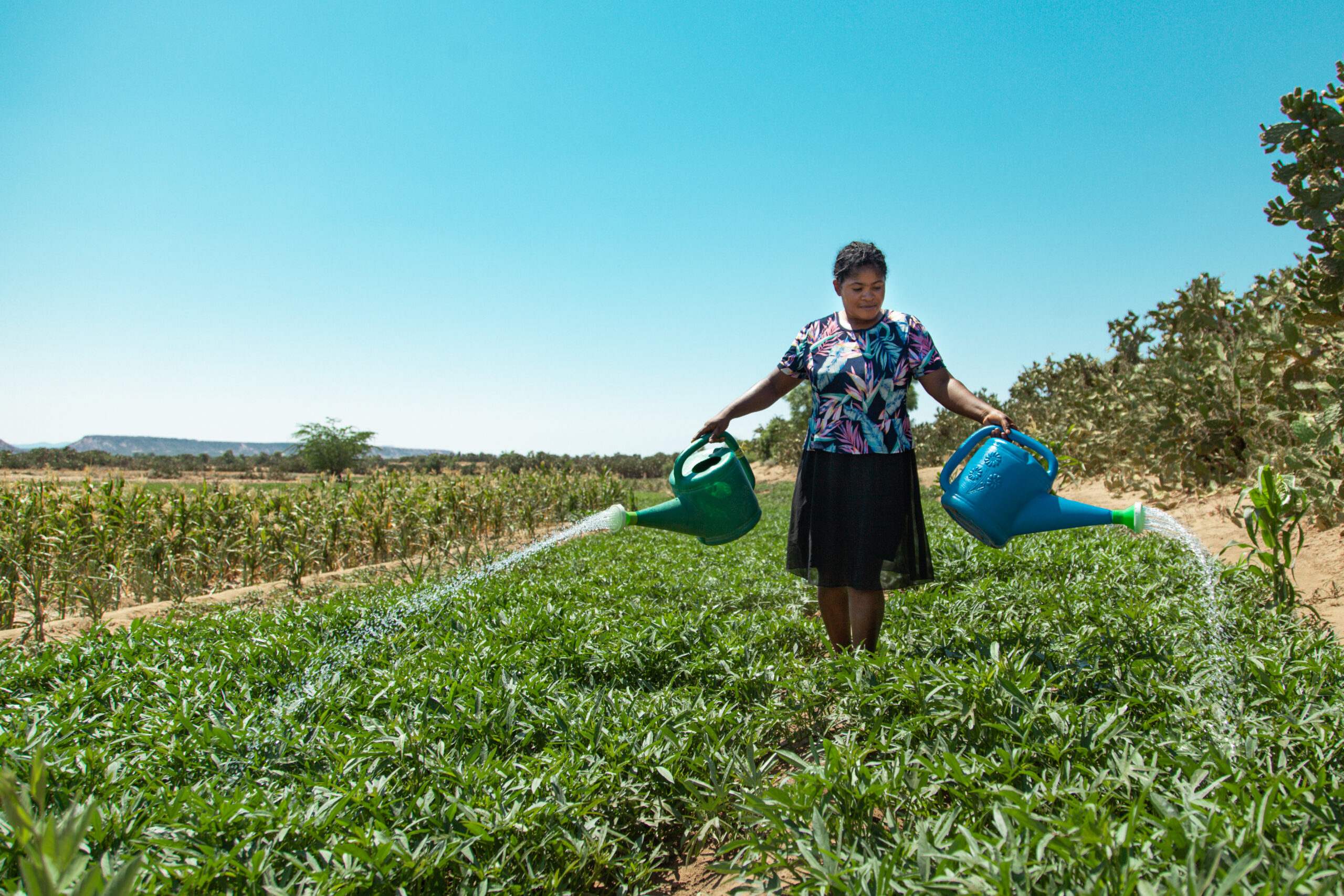
Brazilian smallholder farmers and cooperatives that bring together small rural producers took part in a workshop in Brasilia on November 11 and 12 on how to access the global food purchasing market.
The Workshop on Mechanisms for Purchasing Food from Brazilian Smallholder Farmers on the International Market brought together around 50 participants from all over the country and dealt, among other topics, with strategies for accessing international sales to the WFP, food quality control and training on registering smallholder farmers to sell to the WFP.
“The WFP is the largest humanitarian agency on the planet, feeding 170 million people around the world every day. This workshop is a unique opportunity for cooperatives of smallholder farmers to learn more about the systems of international procurement and to participate in the auctions that take place frequently. It’s a good initiative for Brazilian producers and for the WFP,” said the director of the WFP Centre of Excellence against Hunger in Brazil, Daniel Balaban, during the opening of the event.
For Minister Wellington Dias, of the Ministry of Development and Social Assistance, Family and Fight against Hunger (MDS), the event stimulates agricultural production to the standard that Brazil must operate to participate in the system for buying food for people in situations of urgency, emergency, and calamity. “It’s a big step in learning from the World Food Programme, which allows our cooperatives to access this international market to contribute to the fight against hunger in the world,” she said.
Fernanda Machiaveli, deputy minister of the Ministry of Agrarian Development and Family Farming (MDA), highlighted the government’s efforts to articulate public food security policies that have the strengthening of smallholder farmers at their core. “Smallholder farmers provide healthy products based on increasingly agro-ecological production.”
For her, this joint construction process is advantageous for everyone involved. “By inviting the cooperatives that bring together family farming to this meeting, we are starting a unique participatory process to help simplify purchases, so that it is easy for auctioneers to access this system by following the rules,” she said.
The workshop is an opportunity to build spaces for action to access a market worth 2 billion dollars a year, according to Edegar Pretto, president of the National Supply Company (Conab). “Public policies are being expanded so that cooperatives can enter the international market. Hunger has no borders. We’re going to help produce food and help fight hunger in the world,” he said.
Among the organizers of the event are the WFP Centre of Excellence against Hunger in Brazil, WFP in Panama, MDS, MDA and Conab, as highlighted by the National Secretary for Food and Nutritional Security of the MDS, Lilian Rahal. “We’ve been in talks since the middle of last year. The idea is to resume policies to support smallholder farmers so that more organized family farming can make international purchases possible,” she said.
The deputy director of the WFP in Venezuela, Andres Rodriguez, who has 20 years’ experience in WFP procurement, presented the international system to the participants. He pointed out that in 2023, WFP bought 2.4 million metric tons of food, but that only 3.7% came from smallholder farmers. “I’m sure that Latin America can feed the countries of the region and the whole world. Brazilian smallholder farmers still have a lot of room on the international market, especially for humanitarian sales.”
Cooperatives
Representatives of cooperatives from 15 Brazilian states took part in the workshop. Cledeneuza Maria Bizerra Oliveira, a member of the babassu coconut breakers’ cooperative from Maranhão, said that it was important to take part in a workshop like this to raise the profile of this product, which is native, takes 15 years to produce and has many nutritional qualities. “We also want to take our products, mainly oil and flour, to the international market.”
Carlos Pansera, from the Terra Livre cooperative in Rio Grande do Sul, which already exports products such as powdered milk, rice, coffee, beans and vegetable seeds to countries like Haiti, Cuba and Venezuela, said that this is a great opportunity for them to also be suppliers to WFP.
He said that there are some documentary requirements that the cooperatives need to meet, but the export is done by the World Food Programme. “Our job is to produce the food and take it to the port, and all the import and export registration is the responsibility of the programme, which makes it easier for the cooperatives,” he concluded.




